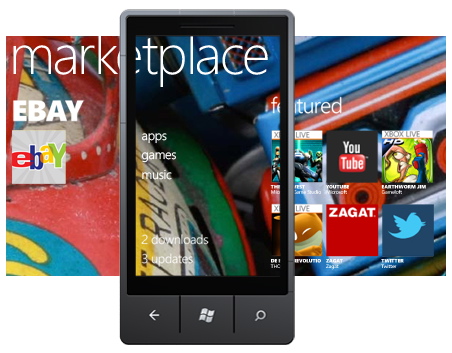The mobile app economy continued to power ahead last year, with 43.6 billion downloads worldwide in the 12 months ending September 2012. And while first-mover Apple may have today had a setback in its attempts to fight off competitors with trademark complaints over the very use of the phrase “app store”, it continues to lead the market in the category, according to figures out today from ABI Research.
But while some might argue that the most obvious marks of app store success are download numbers and sales figures, ABI has chosen two other parameters to measure how well app stores are performing at the moment: implementation and innovation, which it scores on an overall scale of 100. The idea here is that while, at the moment, a store like Apple’s might be leading on download numbers because of its sheer size compared to, say, Microsoft’s Windows Phone store, there is an argument to be made that even if a store is smaller, it’s got a shot at longer-term success for developers who choose to place apps there.
As it turns out, Apple leads the pack with 80.8 out of 100, with Android in a close second position at 72.2. Microsoft is at a more distant 63.9 out of 100, but ABI analyst Aapo Markkanen notes that it actually beat Apple where innovation is concerned, with a total point score of 77 points compared to 76 for Apple in innovation.
In some regards, this is not a big surprise: it’s the latest entrant into the app store world, and it has fewer apps — 200,000 compared to 700,000 for iOS or over 600,000 for the Google Play store.
Markkanen says this has propelled Microsoft, in an underdog position, to being more innovative in terms of how it markets apps and helps users discover them.
He highlights “Microsoft’s approach to app charting” — the listings of Top Free, Top Paid, and so on — as one of the main ways that the company has taken the lead, with algorithm factors being more nuanced with Windows Phone. “An app with a modest-but-loyal and highly-engaged user base gets a boost over an app that may see boatloads of downloads but fails to retain its users,” he tells me. “It’s important because this favors quality apps with modest post-launch budgets over mediocre apps that throw a lot of money at ad networks and other forms of marketing.”
In other words, the underdog app store is better at promoting underdog-but-possibly-great apps. If more developers started to buy into this concept, it could potentially also start to shift the paradigm for how people chart app success away from download numbers.
“I also like the way Microsoft has been transparent about what its chart algorithm has eaten, if compared to Apple and Google which officially never comment anything and leave everything for speculation,” he says. That’s for a reason: “If your algorithm is less holistic, i.e. focused heavily on downloads, it’s also more susceptible for manipulation.” Storefront charts can be real kingmakers in app discovery, he notes, so that makes transparent policies all the more important.
Microsoft has also done a “fairly good job” at app personalization, although this has mainly been just to keep up with what Apple and Google already do; and the ease of use of the Windows Phone Store navigation.
Ultimately, what this says is that while Apple and Google are still leading overall above Microsoft’s app storefront, there is room for improvement for the leaders. Getting complacent however is one way to eventually level the playing field for competition.
